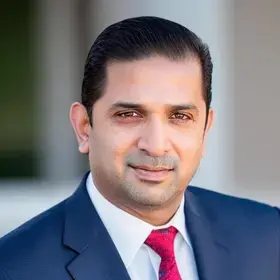Drawing from his roots as a DC native immersed in the political landscape, Benjy Messner's lifelong interest in campaigns and technology has fueled his passion to shape the next generation of political analysts.
Messner is a seasoned professional when it comes to data, analytics, and emerging tech who brings years of experience and insights in his new role as lecturer at Columbia’s M.S. in Political Analytics graduate program. In his Big Data & Political Strategy course, Messner shows students how to combine massive amounts of data with political expertise to devise effective strategies.
In a recent interview with SPS, Messner shared his excitement for Columbia's commitment to nurturing students in the field of political analytics, recognizing the unprecedented institutional backing that promises to not only enrich their education but also streamline the hiring process for industry professionals like himself.
What should students expect from your course in the Political Analytics program?
Big Data and Political Strategy is a course where students are learning to build and examine common data sets like predictive model scores, voter file data, and more, and synthesize that information with their knowledge of politics to come up with options for allocating resources to win campaigns. This is one of the hardest questions in politics, especially because there’s never a right answer or even several right answers, and I hope to help students understand what we’re trying to do, why, and how to do it, so they too can help campaigns win.
What inspired you to specialize in political data, analytics, and technology?
As a Washington, DC, native, I grew up with politics in my backyard. I was always interested in campaigns and in technology and data. I was lucky enough to get a job on a campaign in 2008 when this field was still in its infancy and was immediately hooked.
What was it that hooked you about political analytics?
I was the deputy data director on the 2008 Coordinated campaign in Virginia, working to elect Barack Obama, Mark Warner, and other Democrats on the ticket. Several aspects of the process hooked me immediately, including the rush of winning such a historic election, as Virginia went “blue” for the first time since 1964, and the feeling of participating in a role where applying data and analytics could lead to such great outcomes.
What excites you about the M.S. in Political Analytics program?
As a practitioner, I’ve seen training programs for this kind of work come and go over the years. Seeing an institution like Columbia make a commitment to helping students grow in this area is exciting not just because of what it means for Columbia, but also because it’s the first time we as an industry have ever had this kind of institutional backing for people who want to get in the field. This should make it easier for people like me to hire, in addition to providing students with a great education.
What is your advice for students pursuing a career in political analytics?
I have three pieces of advice to share. First, build as many technical skills as you can. The more you know how to do, the more useful you are, the more you’ll be part of decisions, the more fun you’ll have. Second, don’t focus only on technical skills. Knowing how to present well, how to work with others, how to be part of a team are vital skills. Campaigns are one of the biggest team efforts there is.
And finally, “knock doors” at least once a cycle to stay in touch with reality. In the data and analytics ivory tower, one can become disconnected from actual voters on the ground, so knocking doors to advocate for one’s candidate is a good way to stay grounded. You get the voters’ names, some literature to distribute, and instructions on how to engage in a dialogue with voters. Then you go out and talk to actual people.
About the Program
The Columbia University M.S. in Political Analytics program provides students quantitative skills in an explicitly political context, facilitating crosswalk with nontechnical professionals and decision-makers—and empowers students to become decision-makers themselves.
The final application deadline is June 1, 2024. The 36-point credit program is available part-time and full-time. For general information and admissions questions, please call 212-854-9666 or email politicalanalytics [[at]] sps [[dot]] columbia [[dot]] edu



